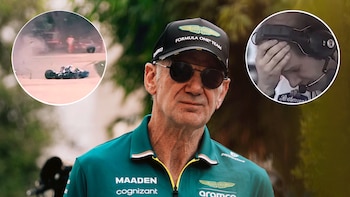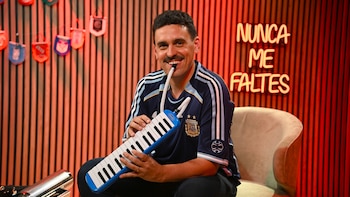The World Anti-Doping Agency (WADA) is pleased to publish a Research Project, which it commissioned titled "Social psychology of doping in sport: a mixed studies narrative synthesis". The Project was conducted by Professor Susan Backhouse and her research team at Leeds Beckett University in the United Kingdom (UK); and, follows on from a 2007 research project led by the same researcher.
"WADA is pleased to assert, as supported by this Research Project, that society’s understanding of the behavior of doping and clean sport has grown considerably in the last decade," said Rob Koehler, Deputy Director General, WADA. "We now have a clearer picture of what are the most effective approaches to tackling doping, even though there is still a lack of research in the area of evaluation of education interventions," Koehler continued. "WADA and its partner organisations are committed to devoting more human and financial resources towards values-based education in order to enhance the effectiveness of the global anti-doping program."
Encouragingly, the Project shows that social science research in the area of anti-doping has exponentially increased since 2007, with an average of 27 peer reviewed papers being published every year. This growth in the body of knowledge greatly adds to our understanding of doping in sport.
The findings of the Project provide weight to what is already known. For example, research continues to reinforce the limitations of an anti-doping model that only focuses on detection-deterrence. Consequently, prevention of doping through education needs to be more prominent within the system and an integral part of all anti-doping efforts. This means a focus on teaching values, which strengthens athletes’ and their support personnel’s ethical decision-making ability throughout their sporting careers.
A failure to act to address the inherent limitations of current anti-doping policy and practice could further extend the legitimacy crisis where athletes and other stakeholders within the sport environment begin to question the merits of the testing system and the rules that govern them. If this is combined with a perception of a low detection rate, this can lead athletes to be more vulnerable and susceptible to doping or disenfranchisement.
The Project also highlights that athletes and athlete support personnel have received little by way of formal anti-doping education. This is particularly worrying with coaches and parents, as they are the primary sources of information for athletes and can easily lead them to inadvertent doping. The internet and media are also prominent sources of information for athletes, which highlights the need for anti-doping organizations to engage with these platforms to ensure correct and accurate messages are being communicated.
What the Project demonstrates most of all is that doping is a very complex behavior that will not be solved by simple solutions. Professor Susan Backhouse emphasizes that "there is an urgent need to shift focus from individual athletes and the ‘fix the bad apple’ narrative to concurrently promote strategies addressing individual, social and environmental factors to prevent doping in sport. Adopting a systems perspective, the priority will be to foster collaboration across sport so that we address multiple levels of influence. Additionally, we cannot afford to ignore the culture of sport and the habitats that athletes occupy as they shape and define their behavior. Therefore, we need to encourage multi-agency working to ensure that sport prioritizes athlete health and well-being."
Although there has been an obvious growth in the research field over the Project period, many gaps and uncertainties remain. Specifically there is a need for:
Greater emphasis on program interventions and more understanding of their design, delivery and evaluation. This requires better partnerships between researchers and practitioners.
An international consensus on research priorities in anti-doping.
More longitudinal research with experimental designs, which requires more investment.
Greater collaboration across disciplines and countries.
For more information, please contact:
Ben Nichols, Senior Manager, Media Relations and Communications
Tel: + 1-514-904-8225
E-mail: media@wada-ama.org
Maggie Durand, Coordinator, Media Relations and Communications
Tel: + 1-514-904-8225
E-mail: media@wada-ama.org
25 Years at #1: Your best source of news about the Olympics iswww.aroundtherings.com, for subscribers only
Últimas Noticias
Boxing’s place in the Olympics remains in peril as IOC still unhappy with the state of AIBA’s reform efforts
The IOC says issues concerning governance, finance, and refereeing and judging must be sorted out to its satisfaction. AIBA says it’s confident that will happen and the federation will be reinstated.

McLaren report to FIBA confirms abuses in the Mali women’s basketball program
The investigation could not “independently verify” allegations against FIBA president Hamane Niang, who has resumed his duties after stepping aside during the probe.

ATR Extra: 1st ISF U15 World School Sport Games – Belgrade 2021
Olympic Channel is live streaming the basketball, basketball 3x3, football, judo and wrestling competitions during the event, which runs September 11-19.

International Judo Federation bans Algerian athlete and coach for 10 years for refusing to fight an Israeli at Tokyo 2020
Judoka Fethi Nourine and his coach Amar Benikhlef admitted they were withdrawing from competition to avoid a potential match with Tohar Butbul of Israel.

IIHF bans Belarus hockey president for five years for code of conduct violations - Federation Focus
Also: no contested election for next ITTF president; BWF calendar shrinks as event in India cancelled due to pandemic; FISU announces early bids for 2027 and 2029 World University Games




